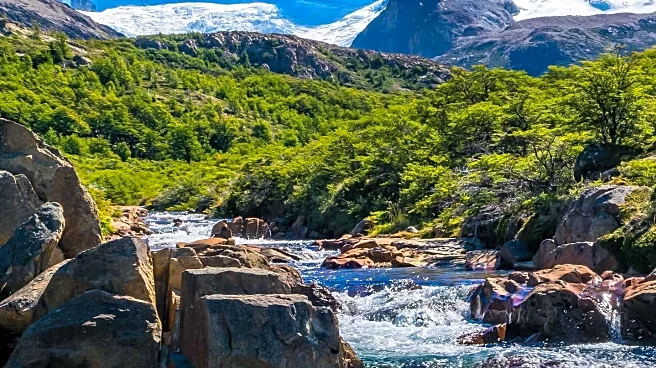What's Happening?
Argentine Patagonia, a region in the southern part of South America, is renowned for its stunning natural landscapes and rich cultural heritage. Spanning six provinces, it offers diverse environments from
the Andes Mountains to the Atlantic Coast. Popular attractions include the Perito Moreno Glacier, national parks, and marine wildlife watching. The region is a hotspot for outdoor activities such as hiking, skiing, and kayaking. Argentine Patagonia is not a country but a geographical area shared with Chile, each managing its portion independently.
Why It's Important?
Patagonia's natural beauty and cultural significance make it a major tourist destination, contributing significantly to Argentina's economy. The region's diverse ecosystems are crucial for biodiversity conservation, while its cultural sites offer insights into indigenous and colonial histories. Tourism in Patagonia supports local economies and promotes cultural exchange, but it also poses challenges such as environmental impact and infrastructure demands. Sustainable tourism practices are essential to balance economic benefits with conservation efforts.
What's Next?
As tourism continues to grow, Argentine Patagonia faces the challenge of maintaining its natural and cultural integrity. Efforts to improve infrastructure, such as road repairs and transportation options, are underway to accommodate increasing visitor numbers. The region is also focusing on promoting off-peak travel to reduce environmental pressure and enhance visitor experiences. Conservation initiatives are being strengthened to protect wildlife and natural habitats, ensuring Patagonia remains a viable destination for future generations.
Beyond the Headlines
The cultural heritage of Patagonia, including its indigenous and colonial history, offers opportunities for educational tourism. By engaging with local communities and learning about their traditions, visitors can gain a deeper understanding of the region's cultural dynamics. This approach not only enriches the travel experience but also supports cultural preservation and community empowerment.









